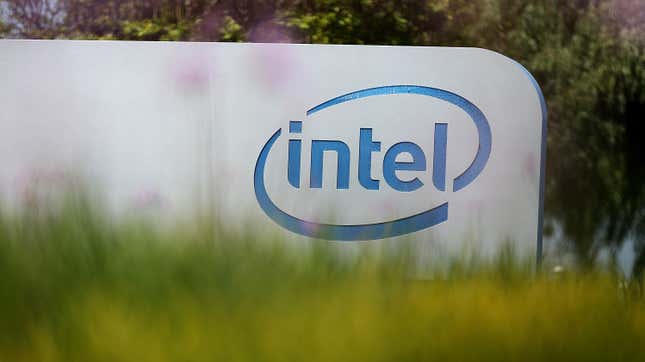
Earlier today, a Twitter user leaked 20GB worth of confidential Intel documents stored on a file-sharing service—documents that the Twitter user claims they received from an anonymous hacker. According to the leaker, the folder contains classified information under NDA, and the hacker who provided the documents to the leaker said they had obtained the files earlier this year. The files have not been posted publicly anywhere before; the hacker is supposedly prepared to release more Intel data.
While Gizmodo does not know what specific information is in the folder, we were able to confirm that, at the time of this writing, the folder exists. The leaker provided a list of supposedly confidential information contained within the folder, and at a glance that list appears to match some thumbnail images in the folder. Since the link was originally tweeted, it has been widely distributed on Twitter.
This high-profile leak comes on the heels of two major data breaches, and while this Intel data breach does not appear to be ransomware, it does appear to be just as severe. Garmin reportedly paid a ransom of millions of dollars to get its entire network back up and running after a cyberattack shut it down. BleepingComputer confirmed that the attack was the work of a new Trojan, WastedLocker, which is able to bypass Windows anti-ransomware tools and interact with Windows application programming interface (API) functions. This makes WastedLocker particularly nasty because it can tell Windows how it should interact with whatever software it wants.
Another hacker is also holding hostage about 10TB worth of sensitive data from Canon. It’s unclear what type of data it is, be it trade secrets or customer information. Bleepingcomputer reported that the initial attack was targeted toward Canon’s Microsoft Teams and company email accounts, but the company ended up taking two dozen of its domains offline, including one where Canon customers can upload their photos.